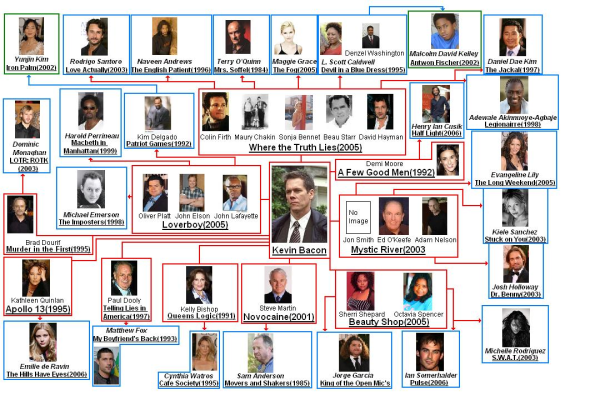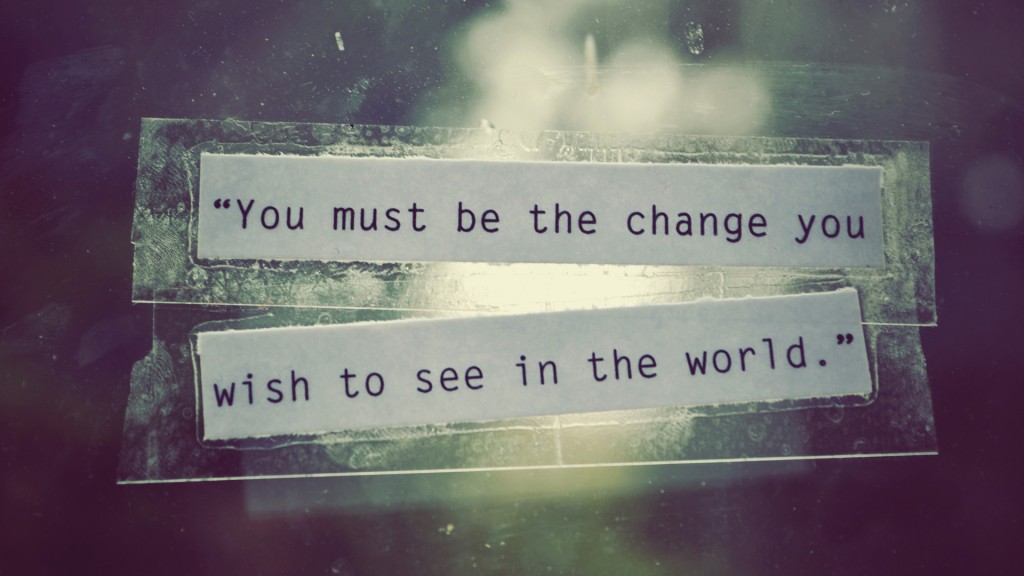I’m 24 years old and I’m now realizing that, despite my tendency to feel like I have a pretty good handle on life, there were a lot of lessons I learned as a child that still ring true today.
For one, I’ve found it exceedingly true that birds of a feather really DO flock together.
I used to hate this saying growing up because I thought it was just…cliché
“Ok mom, I won’t hang out with any ‘trouble makers’. ”
Blah, blah, blah. *picks up PS2 controller*
Turns out, it’s very true. Truer than I’d like to admit — but not for the overtly obvious reasons.
When you’re younger, things are more black and white.
Good vs. Evil.
Right vs. Wrong.
Playstation or Nintendo (COME’ON SON!).
Many decisions were easy to make because the immediate repercussions seemed pretty apparent. Figure out the result you want, then do the action that supports that result.
Now we’re older and things just aren’t that cut and dry.
We are presented with thousands of decsions weekly and sometimes the stress of potentially making the wrong decision overrides our ability to actually make the right one. Ain’t that a bitch!!!
Action halts. Paralysis ensues. No decisions get made.
How bad bad decisions (or no decisions) lead to bad friendships
I am a lazy sonofabitch. So are you.
No harm intended — but let’s face the facts: we avoid making hard decisions every day because hard decisions expend energy. We are energy conservationists by nature.
Friendships fall into this category. We don’t often take time to “prune” our friendships or consciously disassociate ourselves with people who affect us negatively. Especially if they’ve been our friends for a long time.
This is where the conventional wisdom comes in handy. We have to be very aware of who we share our time and space with. A close personal friend or even a more distant friendship with a depressing/unambitious/negative person can, over time, take a huge toll on us.
Mom warned us. This type of bad influence is called a negative primary connection.
Six Degrees of Kevin Bacon at it’s worst…
The popular social experiment Six Degrees of Kevin Bacon highlights the idea that most people are 6 or less social connections away from eachother.
Pick anyone in the world. A celebrity, a stranger on another continent. Anybody. Odds are that through mutual friends and acquaintances, you two can be connected by six or less people. It’s a fascinating concept, but it’s also very scary when you consider the effect we can have on each other without even realizing it. That’s the digital world for you.
That’s why I wasn’t surprised to find that there’s a growing body of evidence supporting the idea that your friends’ friends can wield tremendous power over you without you even knowing it.
In their 2009 work Connected, Nicholas Christakis and James Fowler reminded us that the term “social network” doesn’t just refer to the half dozen websites we log into every day as part of our digital alter ego.
Social networks are the groups of real friends that we all share, intersect and interact with — and they’ve always been central to our developments.
Who we hang around, and who THOSE people hang around in turn, matters. A lot.
Here’s an excerpt from The New York Times book review.
Poring through the meticulous records of the Framingham Heart Study, conducted from 1948 to the present in a small Massachusetts city, Christakis and Fowler mapped out the relationship of 12,067 people with more than 50,000 ties (or connections between friends and relatives) among them. Analyzing the network, the authors noticed that obese people tend to be friends with other obese people, while thin people tend to be friends with other thin people. On one level, this is obvious and unsurprising; birds of a feather and all that. But based on their reading of the data (which some other researchers have questioned), the authors concluded that the relationship was causal: being associated with overweight people, even indirectly, is likely to make you overweight.
As Christakis and Fowler (along with other researchers) have found, obesity spreads by contagion. So if your friend’s friend’s friend — whom you’ve never met, and lives a thousand miles away — gains weight, you’re likely to gain weight, too. And if your friend’s friend’s friend loses weight, you’re likely to lose weight, too.
Traditional wisdom and common sense dictate that one type of person likes to hang around others with similar characteristics.
It’s an entirely different scenario, however, to assume that one person in a social network can CAUSE another person several connections away to make definitive personal changes through indirect suggestion and modeling without even knowing the other person directly.
This is what I’ve coined the “fat friend effect”.
Simply put: if your friends are connected to people who aren’t of the caliber you aspire to be, ultimately you can be dragged down as well. Even if you don’t know the offending slackers. This is called a negative secondary connection and it’s often more dangerous than a negative primary connection because you typically won’t see it coming.
Think this is bullshit?
Imagine your social network as a team. How many times have you seen superstars stifled by a group of overwhelmingly mediocre players?
Sometimes, high performers have to completely disassociate themselves with mediocrity in order to thrive.
Before you run to Facebook to make sure you’re not being “socially polluted”, take a look at this Christaki’s TED talk on the concept:
How to eradicate negative secondary connections without losing all your friends
At this point you should be scared shitless that your friend’s stoner brother-in-law might cost you a promotion.
While that would make me laugh, it’s not entirely true.
There’s definitely something you can do to reduce the chances of a negative secondary connection affecting you:
Be amazing.
As I often tell my grandma (who gets mad when I don’t call enough), the phone works both ways.
Recall in the research that Christakis noted weight lost by a secondary connection can also result in you losing weight.
Positive effects can be spread just as easily as negative effects.
The goal then, should be to elevate your own game so high that others cannot help but take notice. Your positivity and drive must be so strong that not only are you impervious to negative secondary attacks, but both your primary and secondary connections begin to model themselves after you.
In other words, we must learn how to evolve past the victim mentality that says we are incapable beings, barely sentient, constantly affected by our environment in the tide of random choice.
We are not ships lost at sea. We are the sea.
Conversely, it is our duty as change-makers and Rich20Somethings to start affecting our environment, not merely accepting passive consequences.
Gandhi said it best:
When you adopt this mindset, not only will you keep the friends that you have and safeguard yourself against the negative effects of poorly chosen primary and secondary connections — you will most likely make more positive connections than ever before.
The result will be a continuous upward spiral of growing friendships that support you in your journey to be the best damn you possible.
Image Credits: chineseleafwrap.blogspot.com, blog.globalpatentsolutions.com, The New York Times, currybomb.com








